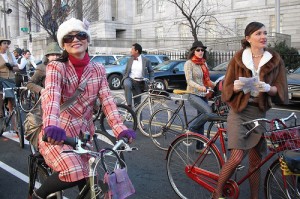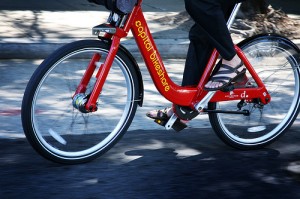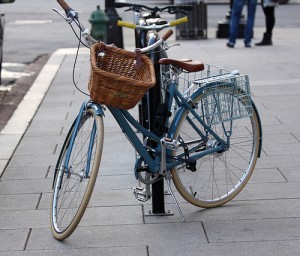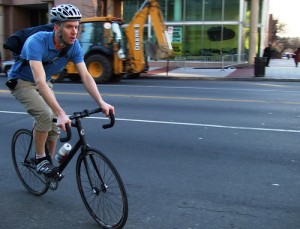Another good candidate for our regular DCentric Pick feature is tonight’s Black Women Bike Happy Hour. The description posted by Martin Moulton, vice president of the Washington Area Bicyclist Association board, reads:
Because in some circles the false perception persists that only young white hipsters appreciate the District’s multi-modal transportation options and the joys of cycling, a few women pedalers of color in the city are getting together tonight for a little reality check, gear & girl talk, to discuss crucial safety issues and style concerns…
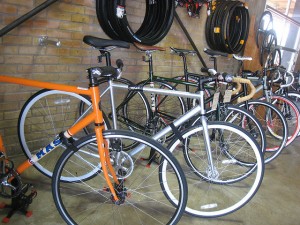
Flickr: Bruce Turner
The Black Women Bike group proclaims that bikes aren't just for "young white hipsters."
The perils of bike-riding can present a unique challenge for some of D.C.’s women of color who serve as primary caretakers of children or senior citizens, as Moulton pointed out in a previous comment on our blog. That reminded co-blogger Anna John:
… that being able to try new things is a form of privilege. Biking in the city is already daunting for some people; single parents who work at jobs that don’t include health insurance or sick days may– with good reason– think twice about taking risks they cannot afford.



